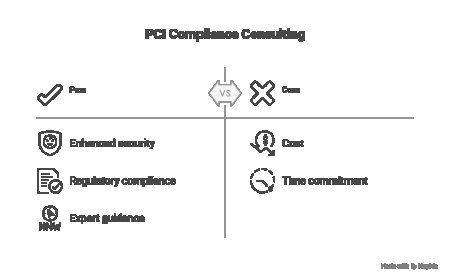How Secure Is Business Fiber Internet?
Explore the security of business fiber internet. Understand its benefits and how it safeguards your sensitive information from cyber threats.

In todays hyper-connected digital world,business fiber internet has become the gold standard for companies that require fast, reliable, and scalable connectivity. But one critical question often arises: How secure is business fiber internet?
Whether you're managing sensitive customer data, processing online payments, or handling proprietary information, understanding the security features of fiber internet and how it integrates with your network security solutions is essential for protecting your business operations.
What Is Business Fiber Internet?
Business fiber internet uses fiber-optic cables that transmit data via light rather than electricity. This makes it significantly faster and more reliable than traditional copper or DSL connections. Apart from speed and uptime benefits, fiber also offers a strong foundation for building a secure IT infrastructure but it's not immune to threats.
Lets break down the layers of security associated with fiber internet and how businesses can enhance their protection using various compliance and consulting solutions.
Fiber Internet vs. Traditional Internet: A Security Perspective
One of the inherent advantages of fiber internet is its resistance to electromagnetic interference and signal tapping. Unlike copper cables, which are vulnerable to physical tapping and data interception, fiber-optic cables are much harder to breach without being detected. This gives businesses a level of physical layer security that older systems simply can't match.
However, no internet service is 100% secure on its own. Hackers and cybercriminals can still exploit vulnerabilities in your software, devices, or human error which is why businesses must complement fiber internet with advanced cybersecurity compliance solutions.
The Role of Network Security Solutions
Fiber internet serves as the fast highway but its your network security solutions that act as traffic police and toll booths. They filter, monitor, and block suspicious activity, malware, and unauthorized access.
With high-speed connectivity, attackers can also execute threats faster if your systems are unprotected. Therefore, deploying tools such as firewalls, intrusion detection systems, and endpoint protection becomes more important than ever.
Incorporating Commercial Perimeter Security Systems both physical (like surveillance and access control) and digital ensures that threats are managed from both outside and inside your organization.
The Importance of Compliance in Securing Your Internet Infrastructure
A key aspect of internet security lies in regulatory compliance. Companies that handle customer data, payment information, or operate across regions need to meet various security standards.
1. PCI Compliance Consulting
For businesses that process credit or debit card payments, PCI Compliance Consulting is critical. The Payment Card Industry Data Security Standard (PCI DSS) lays out requirements for protecting cardholder data during and after transactions. A fast and reliable fiber connection helps ensure real-time fraud detection and secure data transmission.
2. GDPR Compliance Consulting
Businesses serving European customers must ensure compliance with the General Data Protection Regulation (GDPR). GDPR Compliance Consulting helps businesses secure customer data and maintain transparency in how that data is processed, stored, and transmitted all of which are easier to manage over a secure fiber internet network.
3. ISO 27001 Compliance Consulting
ISO 27001 is a leading international standard for information security management systems. ISO 27001 Compliance Consulting enables organizations to build robust, fiber-powered IT environments that are resilient against evolving threats. From risk assessments to implementation of policies, it ensures that your business operates within a security-first mindset.
Final Thoughts: Fiber Internet Is Secure With the Right Strategy
To sum it up: business fiber internet is inherently more secure than other types of connections, offering speed, stability, and strong physical protection. But no internet service is foolproof.
To fully leverage the security benefits of fiber, businesses must implement:
-
Advanced network security solutions
-
Physical and commercial perimeter security systems
-
Industry-relevant cybersecurity compliance solutions
-
Expert consulting services like PCI, GDPR, and ISO 27001 compliance
By combining the raw performance of fiber with comprehensive security and compliance strategies, your business can stay ahead of cyber threats and build a strong digital fortress.





































